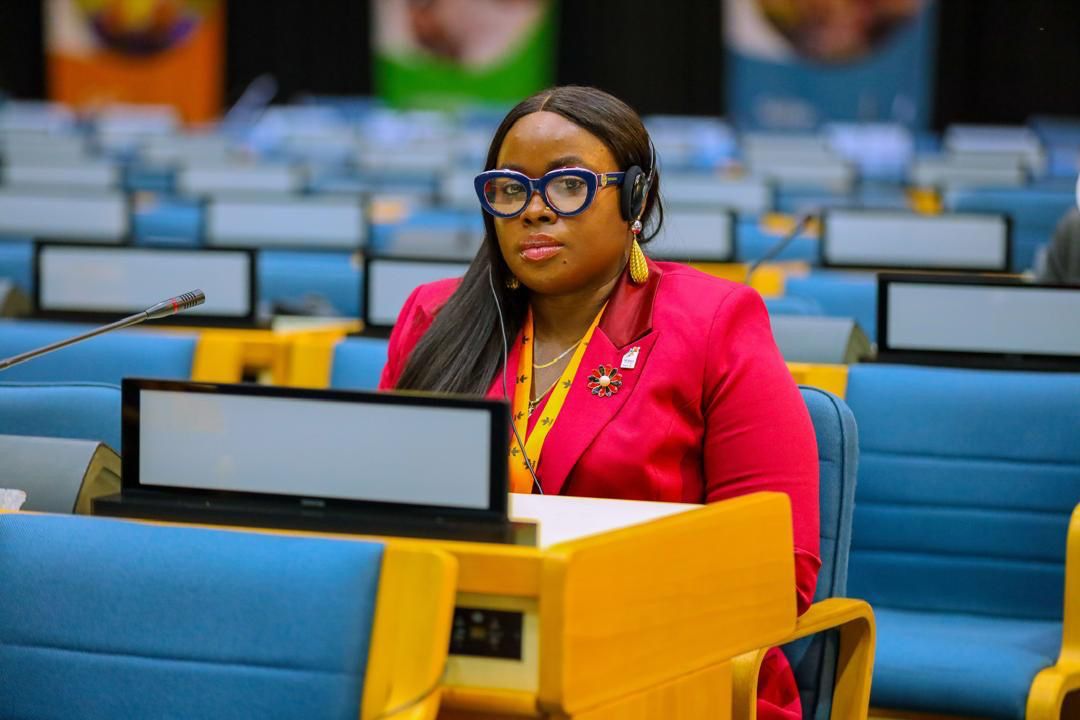
Aiding Sustainable Solutions for Global Food Security, Dr Emem Alban’s impact at the United Nations
Aiding Sustainable Solutions for Global Food Security, Dr Emem Alban’s impact at the United Nations
The United Nations and CGIAR recently held a significant conference at the UN headquarters in Nairobi, Kenya, themed “Science Week,” from April 8 to 12, 2025. This event brought together leading scientists, decision-makers, and prominent figures from around the globe, including the former president of Nigeria, Dr. Ebele Goodluck Jonathan. The conference aimed to address urgent global challenges in agriculture, climate, and health, fostering collaboration and innovation to secure sustainable food systems.
The gathering was particularly timely, as the world faces unprecedented challenges in food security and environmental sustainability. With the global population projected to reach nearly 10 billion by 2050, the demand for food is expected to increase significantly. This reality necessitates innovative solutions to enhance agricultural productivity while minimizing environmental impact. The Science Week conference served as a platform for experts to share research findings, best practices, and technological advancements that can lead to more efficient food production systems.
Among the distinguished attendees was Dr. EMEM Alban, a renowned crop scientist and agribusiness entrepreneur. Her presence at the conference underscores her pivotal role in the agribusiness industry. Dr. Alban has consistently demonstrated her commitment to advancing agricultural practices and enhancing food security through innovative research and sustainable methods. She has been involved in various projects that focus on developing resilient crop varieties, improving soil health, and promoting sustainable farming practices that empower local communities.
Her participation in the Science Week provided her with a unique opportunity to connect with other experts and organizations, such as the Food and Agriculture Organization (FAO), the International Institute of Tropical Agriculture (IITA), and the World Food Programme, facilitating valuable exchanges of ideas and potential partnerships. These interactions are crucial for fostering collaborative research efforts and mobilizing resources to tackle pressing agricultural challenges.
The conference emphasized the importance of collaborative efforts in tackling pressing issues related to food systems and climate change. Key highlights included discussions on how to inspire action and secure investments in sustainable practices. Participants explored innovative financing models, public-private partnerships, and policy frameworks that can support the transition to sustainable agriculture. The dialogue also focused on the role of technology, such as precision agriculture and biotechnology, in increasing crop yields and reducing waste.
Dr. Alban’s involvement in these discussions not only reflects her expertise but also her dedication to making a lasting impact in the agribusiness sector. She actively engaged in panels and workshops, sharing insights from her own research and experiences. As a delegate, she is poised to leverage the insights gained from this event to further her initiatives, ultimately contributing to a more sustainable and resilient agricultural future.
The outcomes of the Science Week conference are expected to influence policy-making and investment decisions in the agricultural sector. By highlighting successful case studies and innovative practices, the conference aimed to inspire stakeholders to take action and commit to sustainable development goals. The collective efforts of scientists, policymakers, and industry leaders are vital in ensuring that agriculture can meet the needs of a growing population while safeguarding the planet for future generations.
In conclusion, the Science Week conference at the UN headquarters in Nairobi represented a significant step forward in addressing global challenges in agriculture, climate, and health. The collaboration between the United Nations, CGIAR, and various stakeholders highlights the importance of science and innovation in creating sustainable food systems. As leaders like Dr. EMEM Alban continue to champion these efforts, the potential for transformative change in the agribusiness sector remains strong, paving the way for a more food-secure and environmentally sustainable future.














Post Comment